艺术家弗兰克·哈弗曼斯(Frank Havermans)的创作思路非常清晰,他的作品几乎都由两个名称加编号命名:从建筑概念出发设计的KAPKAR和从城市化角度出发思考创作的TOFUD。用材也相对简单:以木料和建筑金属为主。他创作作品会先进行大量的调研,因地制宜而做,所以部分作品被永久的保留在当地。从重庆这座城市出发,我们选择的大部分作品是艺术家创作的TOFUD项目,其中部分作品是将重庆作为研究对象或在重庆制作完成的,都是在地的研究和创作,正是因此,我们将展览的中文标题定为《临时工作室》,以指向艺术家在地工作的方式。
像是2016年在重庆创作的TOFUD#Chongqing-BB2这件作品,是以重庆特有的劳动力“棒棒”和城市之间的关系来创作的。棒棒肩上扛着的标志性圆木棍或者竹筒,被艺术家转换成了截面为十字的形状,几乎无法让人辨识出它的原型。如果不是作品由摄影的方式再次被还原出来,面对它的观众很难想象这件作品还和劳动力有关吧。城市化让机械渐渐代替人力,重庆在飞速扩张的同时,城区里面“棒棒”这种劳动力也在快速的消失着。哈弗曼斯这根带棱角的棍子,扛在肩上负荷一定是件痛苦的事情,像是部分人在艰难的跟着变化越来越快的时代步伐。那经一根细木棍链接在下面的,仿佛一块被切割开的黑色岩石,以一种具未来感的样式重新组合,正是重庆这座立体饱满的“山城”,被看似危险的悬吊在空中。整个城市的问题——紧张和压力——在作品中巧妙的得以彰显。
其他更加平面化的作品,比如墙面上巨大的绘画作品,名称为《INFRA》,与展览的英文标题同名(INFRA来自英文单词INFRASTRUCTURE,意思是基础建设)是一个奇异的人造景观组合:巨大的黑影是世界上各个海港的平面图,它们被艺术家跨越地理位置的组合叠加在一起,显得尤为陌生。海港这个建筑体在这里被艺术家彻底平面化。它们突兀的造型,以极不协调的构图,冒犯的出现在展厅里。以俯瞰的角度,艺术家将让造物者以非常规的方式观看这些应自己需求而生的产物。这些填海“生长”出来的海港,是人类拓展,是城市拓展的一种直接显现。另一组综合材料绘画,是哈弗曼斯自1995年开始创作至今的绘画作品的部分节选。它们每一张都是艺术家想象绘制的图案。硬纸板上先是涂上厚厚的油灰,再画上类似建筑平面图的块面,加上极细的点和线的延伸,像缩小的一张张城市版图。哈弗曼斯在他绘画的过程中思索,并尝试探寻扩展的边界。绘画除了在二维平面上添加元素,还可以不停叠加层次,一次油灰、两次油灰、一次墨水、两次墨水,这就像城市的扩张,具或有或无的方向感。
这里的每一件作品都综合了大量的信息,又有推敲的细节,有材料和形状的隐喻,简练的表面背后带出它们与社会和人类欲求的错综的关系。我们希望借本次展览让观众对艺术家的工作方式和作品能有一定的了解,并看到艺术家长期以来在不停思考和实践中的创作状态。
Frank Havermans has a clear concept of art creation. Almost all of his works are named in the same manner - the names of his architectural works usually start with ‘KAPKAR,’ followed by a number, and the names of his works related to urbanization usually start with ‘TOFUD,’ also followed by a number. The materials he uses are relatively simple as well – he mainly uses timber and architectural metals. Before he creates a piece of work, Haverman does plenty of researches and often creates his works site-specifically. This is also the reason why some of his works are permanently kept at the places they were created. With the city Chongqing in mind, we have mainly selected from the artist’s ‘TOFUD’ projects. Among our selections, some use Chongqing as the object of study or are created in Chongqing themselves. These are site-specific works. Therefore, for the Chinese name of this exhibition, we have decided to use ‘临时工作室’ (translates as ‘temporary studio,’ in reference to the artist’s method of creating his works site-specifically.)
Taking ‘TOFUD#Chongqing-BB2’ as an example, this piece of work was created in Chongqing in 2016. It is based on the relationship between Chongqing’s unique type of laborers ‘Bangbang’ (professional porters in Chongqing who use bamboo sticks as tools for their work) and the city Chongqing. The signature bamboo (or wooden) stick held on the bangbang’s shoulder is transformed by Havermans into something with a different look – one with a cross-shaped cross section. If this piece of work was not accompanied by the photograph of bangbang sticks, it would be very hard for the audience to build the connection between the work and the manual labor tool it represents. In the process of urbanization, machines gradually replace manual labors. While the city is expanding at an extremely rapid speed, bangbang men are disappearing from the urban scene at a similarly rapid speed. Havermans’s stick is not round-shaped – it has edges and corers. One could imagine that it must be very painful to use Havermans’s stick to carry any heavy parcels, similar to the ways part of the population have been struggling painstakingly to adapt to the ever-faster pace of the modern day. There is an object suspending from the stick by a thin wooden stick; it looks like a black rock that’s cut into pieces, then re-assembled into a futuristic-looking object; this object actually stands for the ‘Mountain City’ Chongqing, which suspends in a seemingly dangerous manner in midair. The tension and stress that faces the entire city of Chongqing is thus expressed subtly.
Other more two-dimensional works, for example this huge drawing on the wall is named ‘INFRA,’ the namesake of this exhibition. (‘INFRA’ as in the English word ‘infrastructure,’ which refers to the infrastructure construction.) It is a unique combination of manmade landscape: the huge black shadow is the plans of various seaports in the world; these plans are layered on top of each other by the artist disregarding their geographical locations, therefore the shadow looks quite unfamiliar to our eyes. Seaports as three-dimensional existences are converted into two-dimensional objects on this drawing. The shapes stand out as bizarre and the composition of the drawing is highly disproportionate – it jumps at the audience in the exhibition room. From an overlooking perspective, the artist shows us – the Creators – what our needs have given birth to in an unusual way. These ports come into being through land reclamation, which is a direct reflection of how humans have been developing and expanding their cities. There is another group of mixed media drawings, which are selections from the year of 1995 (when Havermans initially started drawing) till the present day. Each and every one of these drawings are based on the artist’s imagination. The process goes like this: the cardboard is first covered in a thick layer of putty, then Havermans draws patterns that resemble architectural plans on it. He also adds tiny dots and extended lines to the patterns, and the drawing would look like a miniature city plan. Havermans meditates while he draws, and tries to explore the extended boundaries. Apart from two-dimensional elements, layers can be added to the drawings too– one layer of putty, two layers of putty, one layer of ink, two layers of ink… Similar to the expansion of cities, these expansions and layering may or may not carry on with a sense of direction.
Every work contains a large amount of information and delicate details that are worth pondering on; the materials he uses and the shapes he adopts are metaphors; behind their clean and simple looks hides their complex relationships with the society and with the human desires. We hope that through this exhibition, our audience will learn about the methods and works of Frank Havermans, and also see how the artist’s is constantly reflecting and practicing in his art creation.
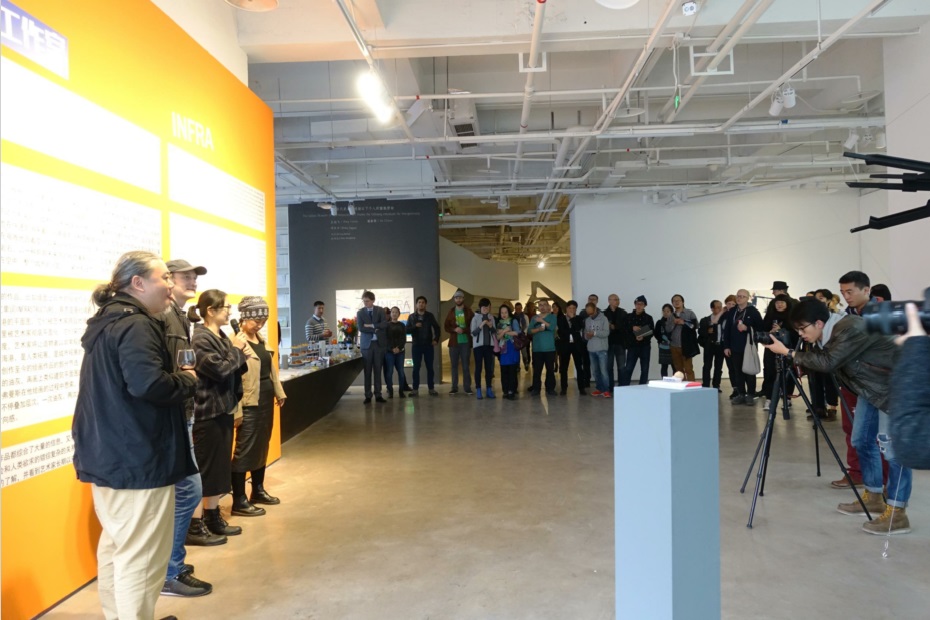
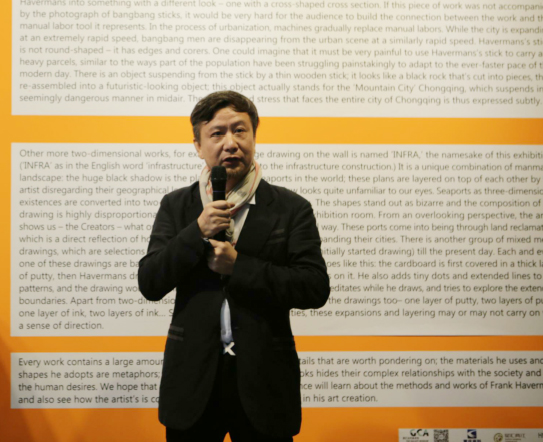
▲星汇当代美术馆馆长黄中华先生发言致辞
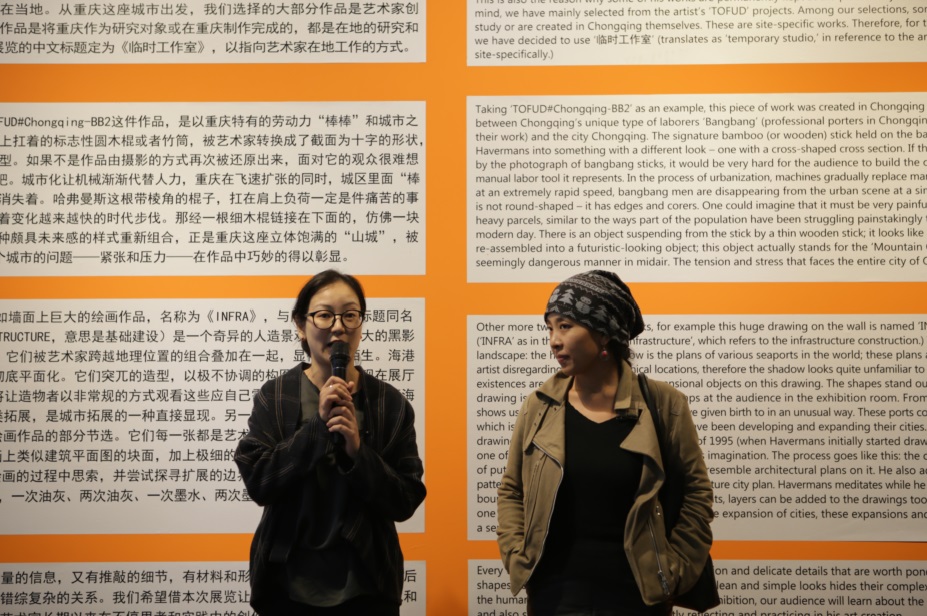
▲策展人李丽发言
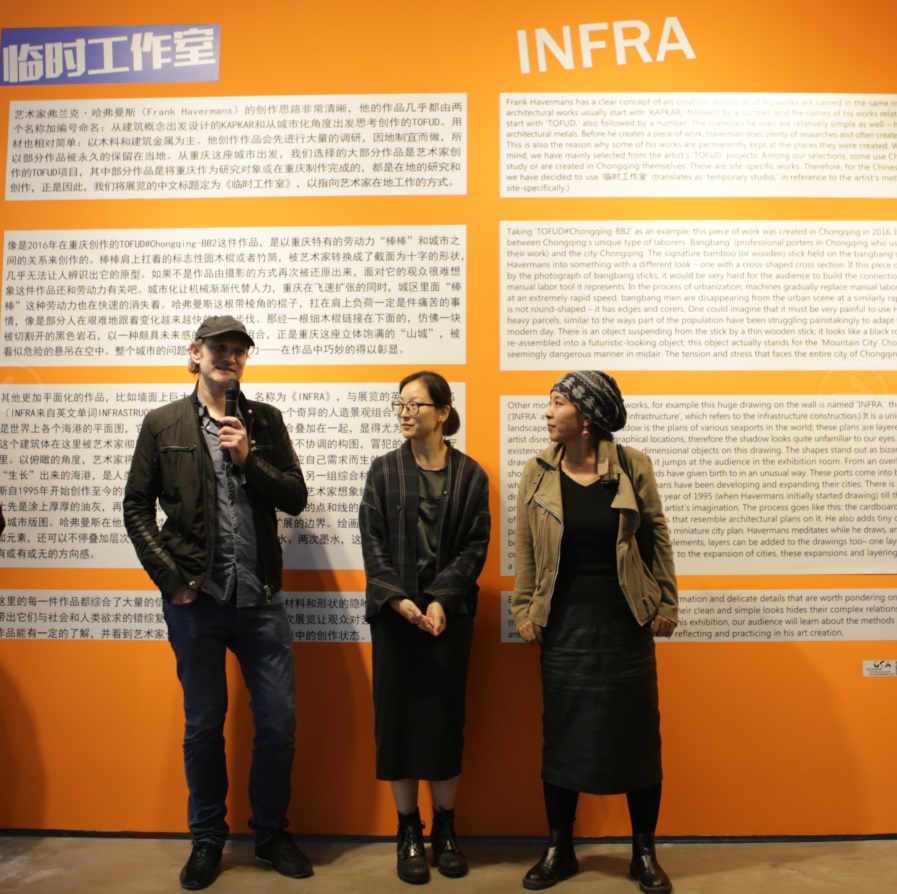
▲艺术家弗兰克·哈弗曼斯(Frank Havermans)发言
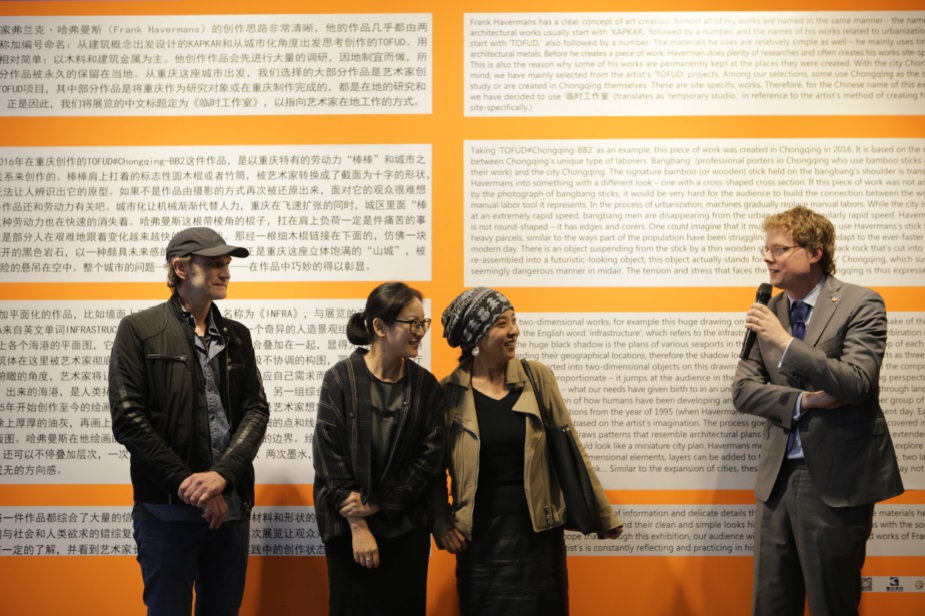
▲荷兰王国驻重庆总领事馆副总领事冯托明讲话
展览现场
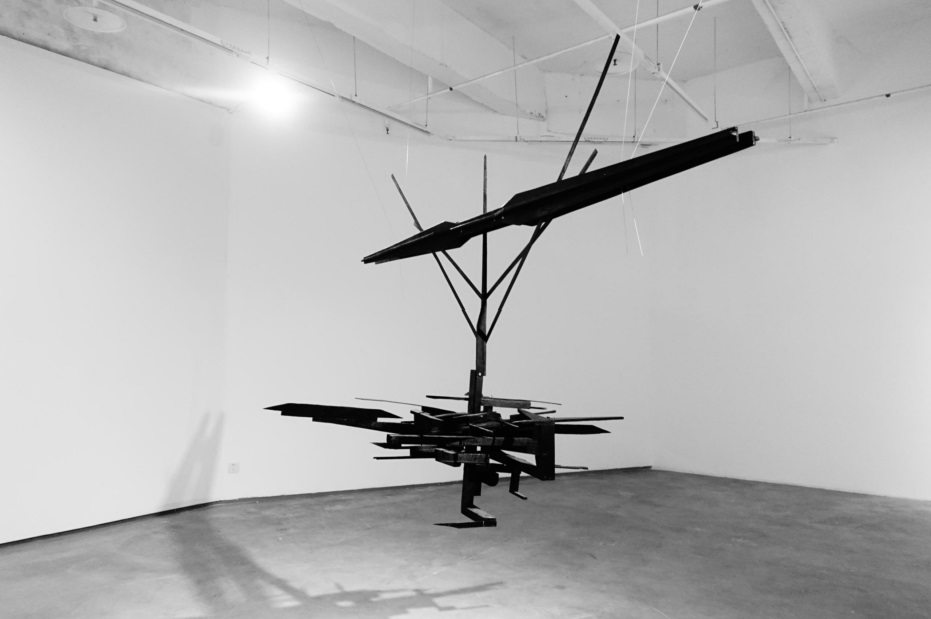
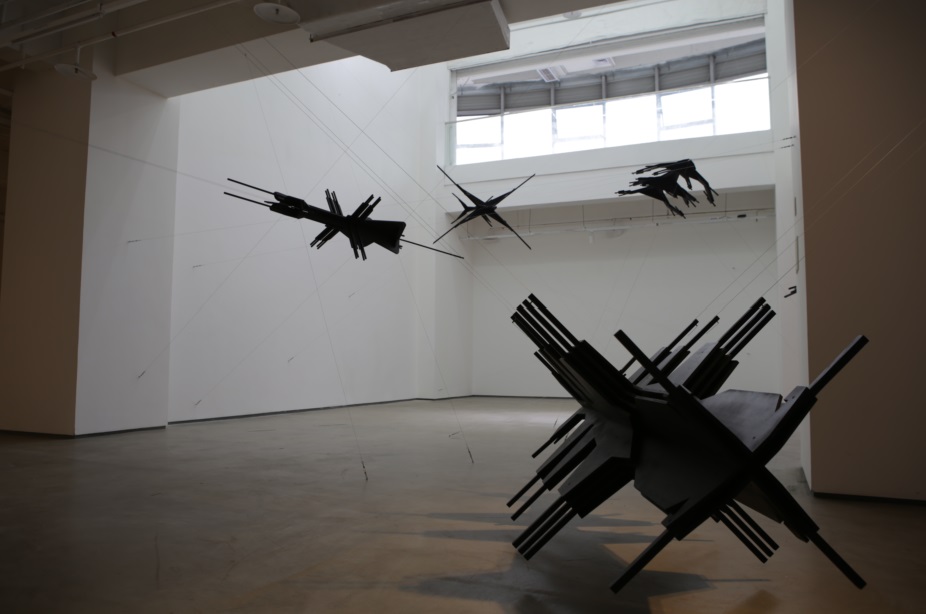
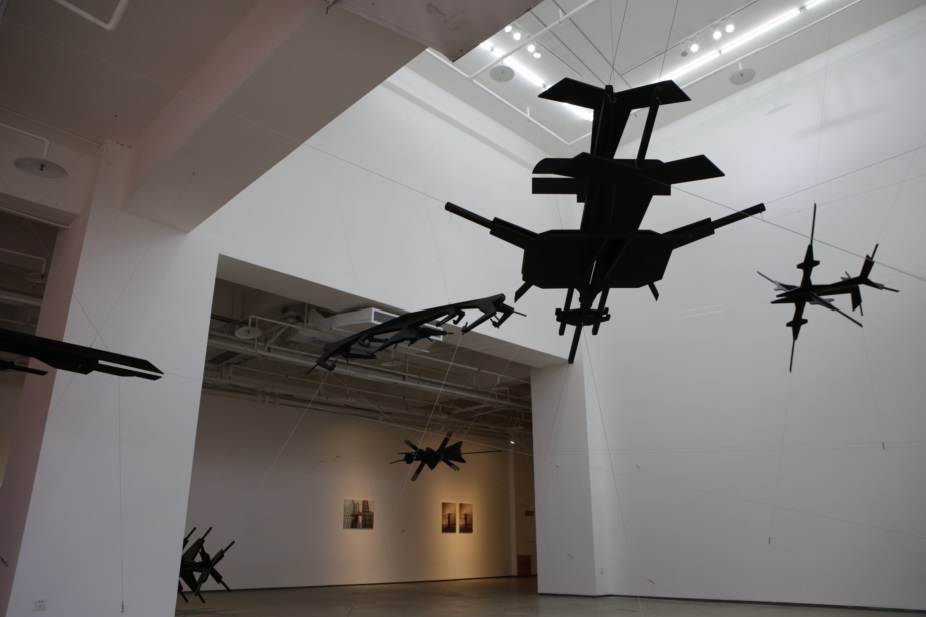
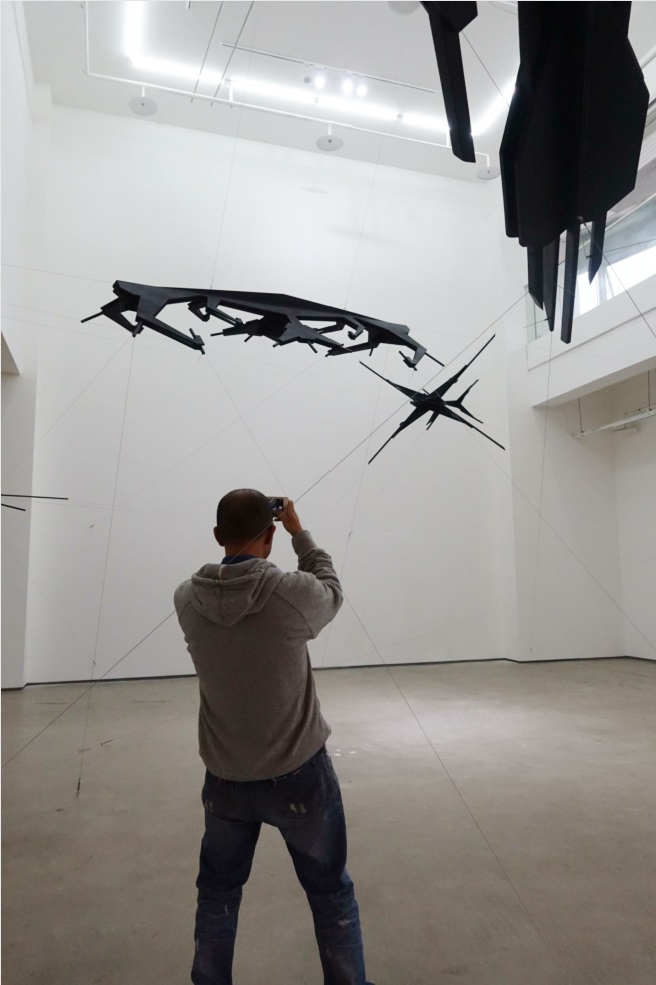
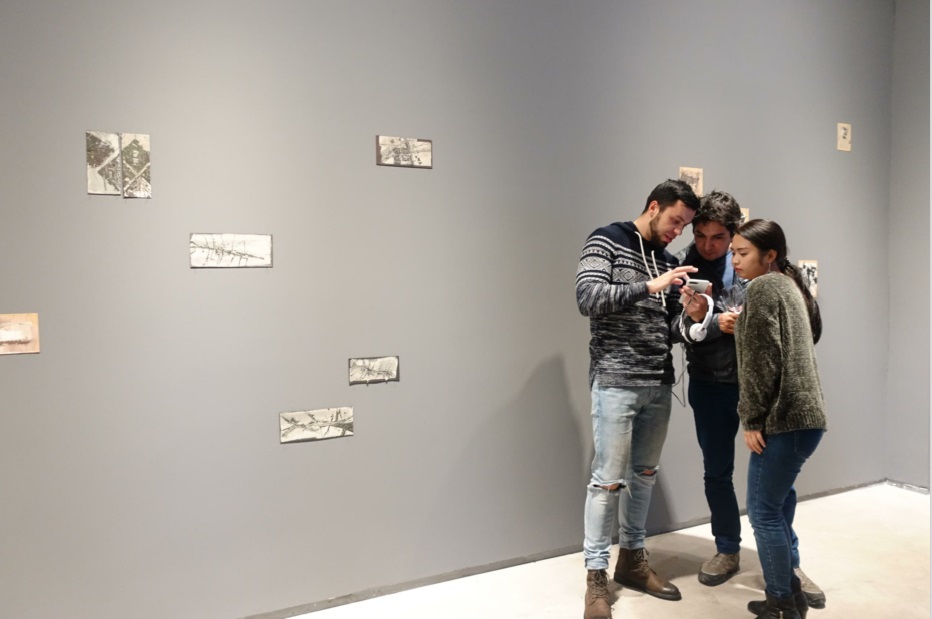
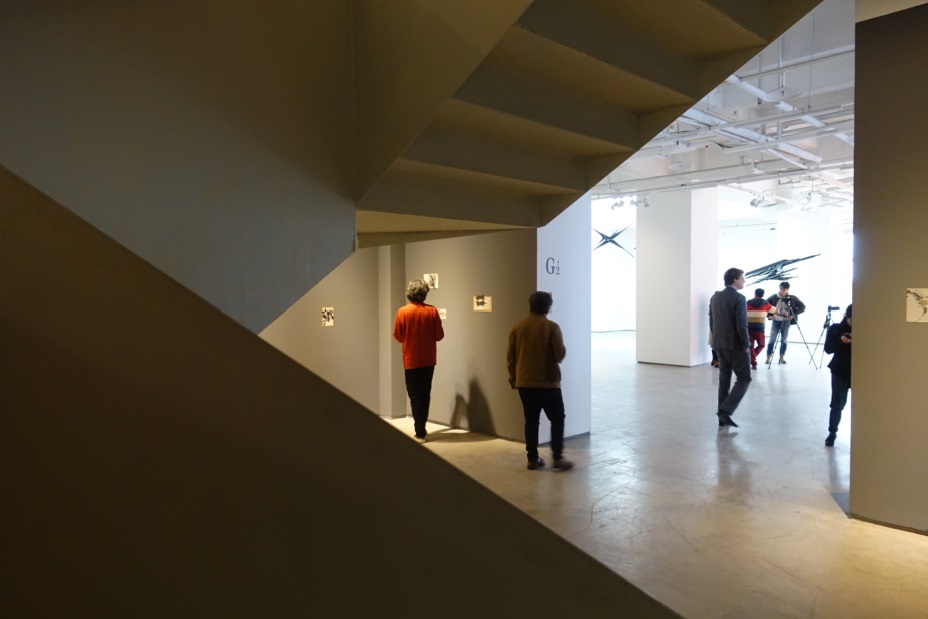
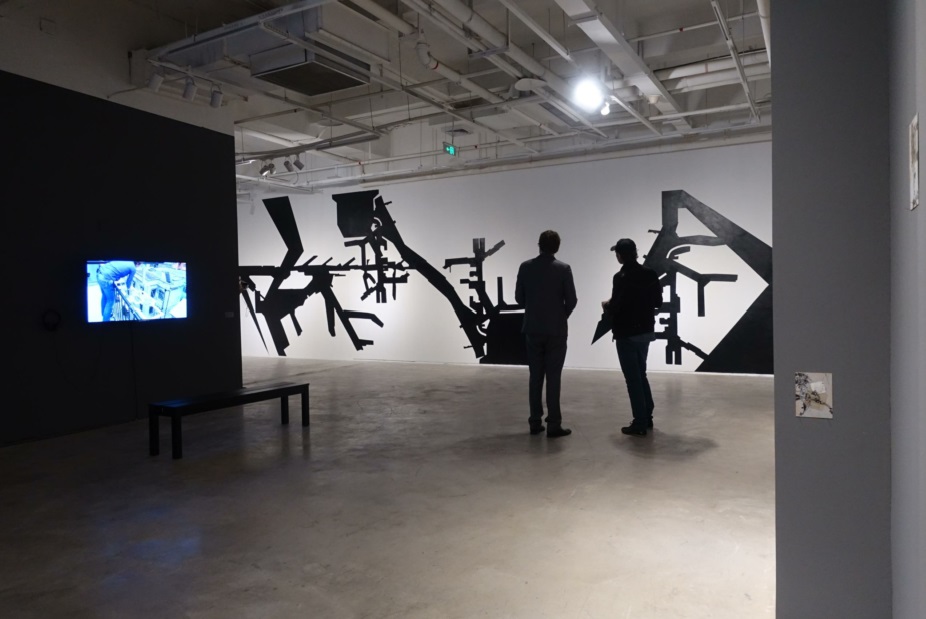
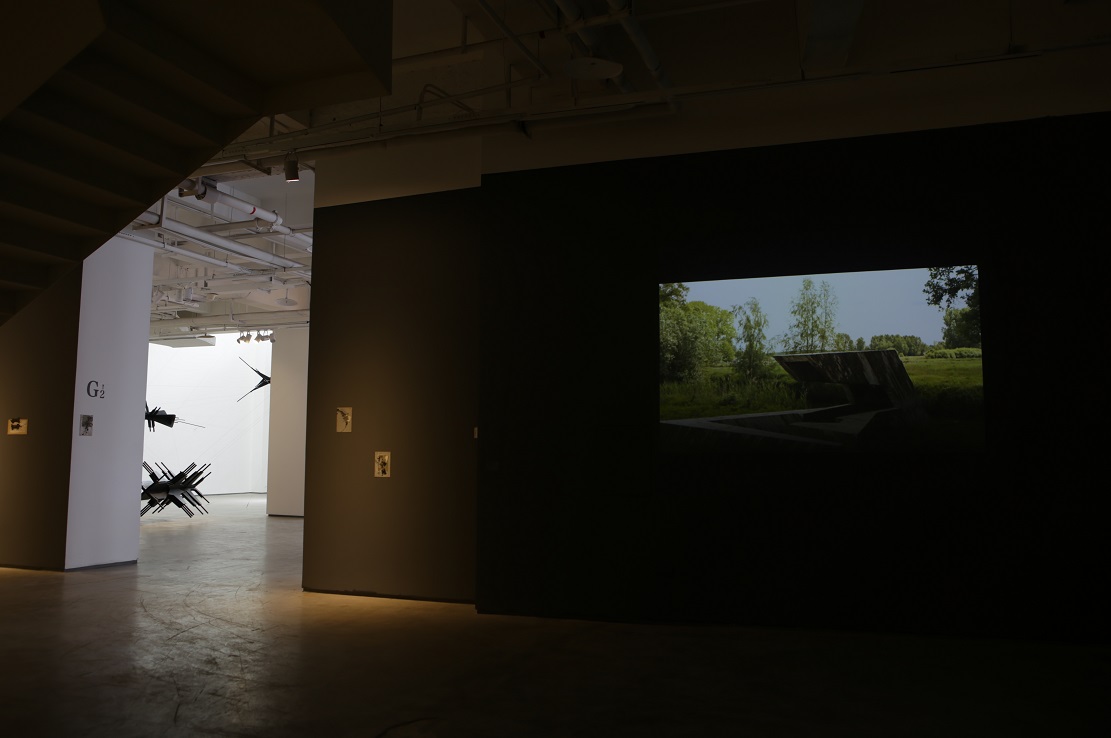
展览概况
出品人/Produced by
黄中华 Huang Zhonghua
艺术总监/Art Director
杨 述 Yang Shu
策展人/Curator
李丽 Li Li
展览协调/Coordinators
张小吧 Zhang Xiaoba
张迎映 Zhang Yingying
展期/Duration
2017年10月22日2017年10月22日
2017 Oct. 22nd, 2017 to Dec. 03rd, 2017
地点/Venue
重庆两江新区黄山大道中段6号星汇两江艺术商业中心3区
重庆星汇当代美术馆1-2楼
F1-F2, The Galaxy Museum of Contemporary Art, Bloc 3, Xinghui Liangjiang Art Business Center, Liangjiang New District, Chongqing
对外开放时间:
每周二至周天:10:00-18: 00(周一闭馆)
票务信息:免费
opening time:Tue-Mon 10:00-18:00
Ticket information: Free
Tel: +86 23 63111269
E-mail: gcacenter@126.com
地址:重庆两江新区星汇两江艺术商业中心3区1-2楼
F1-2 Block 3, Xing Hui Liang Jiang Art Business Center,
Liangjiang New Zone District,
Chongqing, China 400021